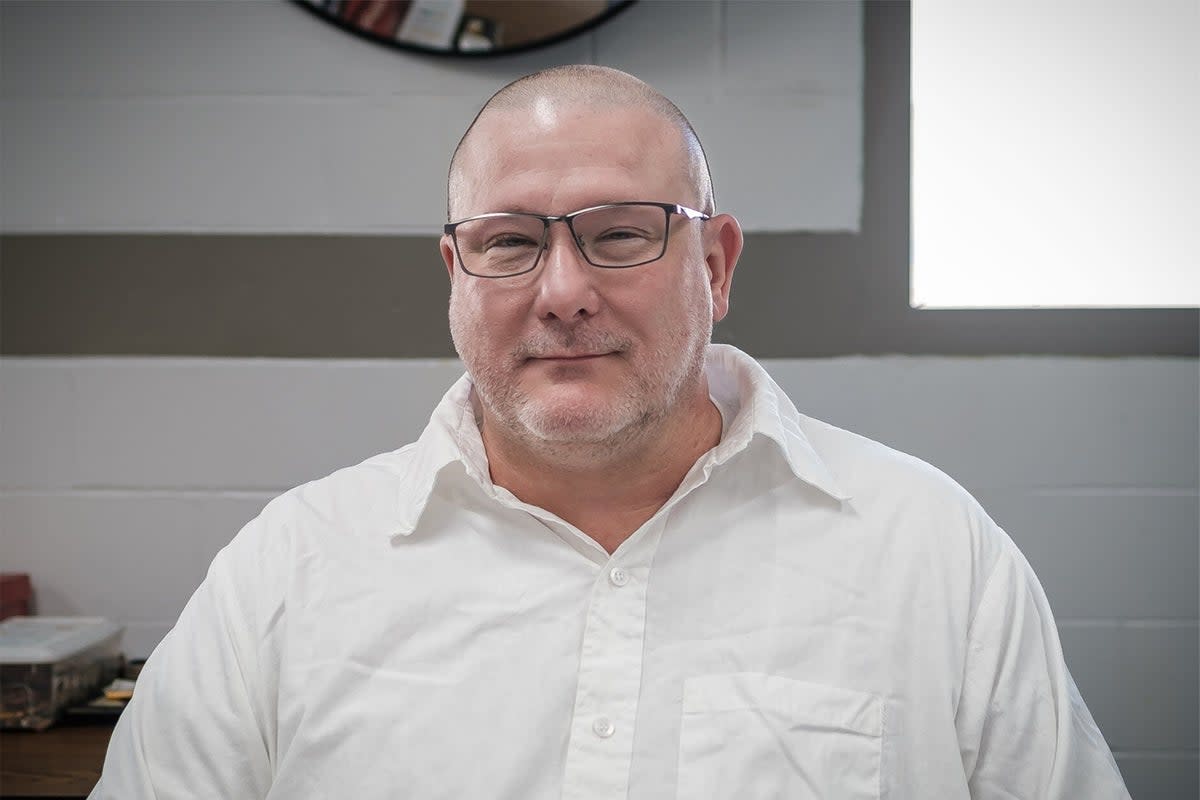Missouri death row inmate faces execution today despite pleas from prison guards

Missouri governor Michael Parson on Monday denied a last-ditch clemency request from Brian Dorsey, 52, a death row inmate scheduled to be executed on Tuesday for a 2006 double-murder.
“The pain Dorsey brought to others can never be rectified, but carrying out Dorsey’s sentence according to Missouri law and the Court’s order will deliver justice and provide closure,” Governor Parson, a former sheriff who hasn’t blocked an execution since taking office in 2018, wrote in a statement.
The Missouri inmate’s attorneys condemned the decision in a statement, pointing to Dorsey’s commitment to rehabilitation and what they see as his flawed original legal representation.
“Governor Parson has chosen to ignore the wealth of information before him showing that Brian Dorsey is uniquely deserving of mercy,” attorney Megan Crane said on Monday. “Brian has spent every day of his time in prison trying to make amends for his crime, and dozens of correctional officers have attested to his remorse, transformation, and commitment to service. Brian’s unprecedented support, and his irrefutable evidence of redemption, are precisely the circumstances for which clemency is designed. Allowing Brian to be executed despite this truth is devastating.”
Some family members of the victims, Dorsey’s cousin Sarah and her husband Ben Bonnie are in support of the death sentence, while others have argued against it.
“All of these years of pain and suffering we finally see the light at the end of the tunnel,” one group of relatives said in a statement earlier this year. “Brian will get the justice that Sarah and Ben have deserved for so long.”
The clemency decision comes despite Dorsey filing appeals in state and federal court, and a group of more than 70 current and former corrections officers advocating for the man’s death sentence to be downgraded.
“Generally, we believe in the use of capital punishment,” the officers previously wrote the governor. “But we are in agreement that the death penalty is not the appropriate punishment for Brian Dorsey.”
Dorsey was sentenced to death for the 23 December 2006 killing, a punishment affirmed in appeals to courts at the state, federal, and US Supreme Court levels.
The pair invited Dorsey into their home for the night in New Bloomfield, Missouri, during a period when Dorsey feared a group of drug dealers were pursuing him to collect on a debt, according to the Missouri Attorney General’s Office.
Prosecutors also allege that after Dorsey killed them, he sexually assaulted Sarah and poured bleach on her, though these allegations weren’t fully considered in court because Dorsey pleaded guilty.
Dorsey turned himself in to police and isn’t appealing on the basis that he’s innocent; rather, he argues he received constitutionally flawed original legal representation, violating his 6th Amendment right to counsel.
According to advocates, Dorsey’s original attorneys failed to bring forward key pieces of evidence, a potential result of being paid a $12,000 flat fee each to defend him, a practice legal observers say can encourage hasty resolutions of capital cases, which can last years.
The Missouri man’s original attorneys didn’t disclose Mr Dorsey’s claim to have been in a drug-induced state of psychosis during the murders and didn’t investigate or present his past struggles with mental health, which included a major depression diagnosis and seeking inpatient treatment, according to the Death Penalty Information Center.
They also negotiated a guilty plea deal that didn’t include any assurances about what sentence Dorsey would receive.
The practice of paying flat fees in capital cases has long been considered “improper” by the American Bar Association because of its potential to “discourage lawyers from doing more than what is minimally necessary.”
In a March letter to the governor, Michael Wolff, a former Missouri Supreme Court judge who once upheld Dorsey’s death sentence, said this was one “rare cases where those of us who sit in judgment of a man convicted of capital murder got it wrong” and added that the flat fee arrangement, which Missouri has since ceased to use, “undoubtedly influenced everything.”
When contacted byThe Independent, his original attorneys, Chris Slusher and Scott McBride, declined to comment.
Since being in prison, according to correctional staff, Dorsey hasn’t had any infractions and has become a trusted barber for inmates and the occasional prison staff member.
Over the weekend, Dorsey’s attorneys and the state reached a settlement over a separate issue, whether protocols were in place to prevent unnecessary suffering if executioners struggled to place an IV line to deliver the execution drugs. In some cases, execution staff resort to a “cutdown,” making a potentially deep incision in the skin, to locate a proper vein.
The death row inmate had argued that because he is obese, has diabetes, and is a former intravenous drug user, it could make a cutdown more likely, a painful process his attorneys compared to “surgery without anesthesia.”
Barring a last-minute postponement, Dorsey is scheduled to be executed at 6pm local time at the Eastern Reception, Diagnostic and Correctional Center prison in Missouri via lethal injection.
Missouri executes more people than almost all other US states. The state has executed 97 people since 1976, trailing only Texas, Oklahoma, Virginia, and Florida, according to the Death Penalty Information Center.
Last year, it was one of only five states to carry out executions, killing four people.
The Independent and the nonprofit Responsible Business Initiative for Justice (RBIJ) have launched a joint campaign calling for an end to the death penalty in the US. The RBIJ has attracted more than 150 well-known signatories to their Business Leaders Declaration Against the Death Penalty - with The Independent as the latest on the list. We join high-profile executives like Ariana Huffington, Facebook’s Sheryl Sandberg, and Virgin Group founder Sir Richard Branson as part of this initiative and are making a pledge to highlight the injustices of the death penalty in our coverage.

